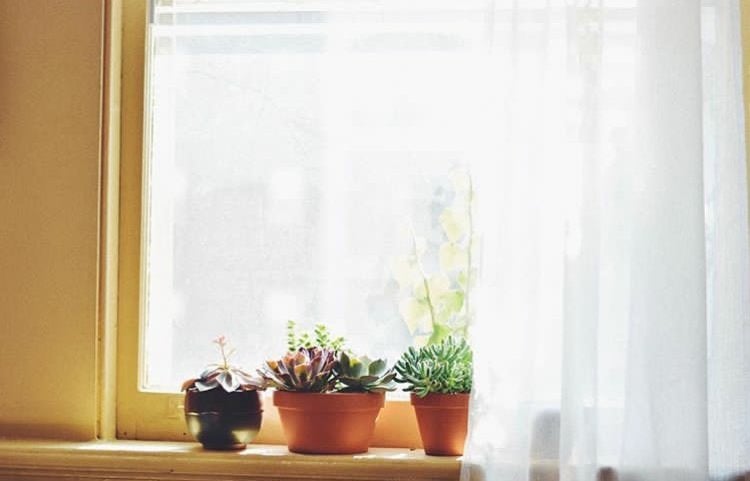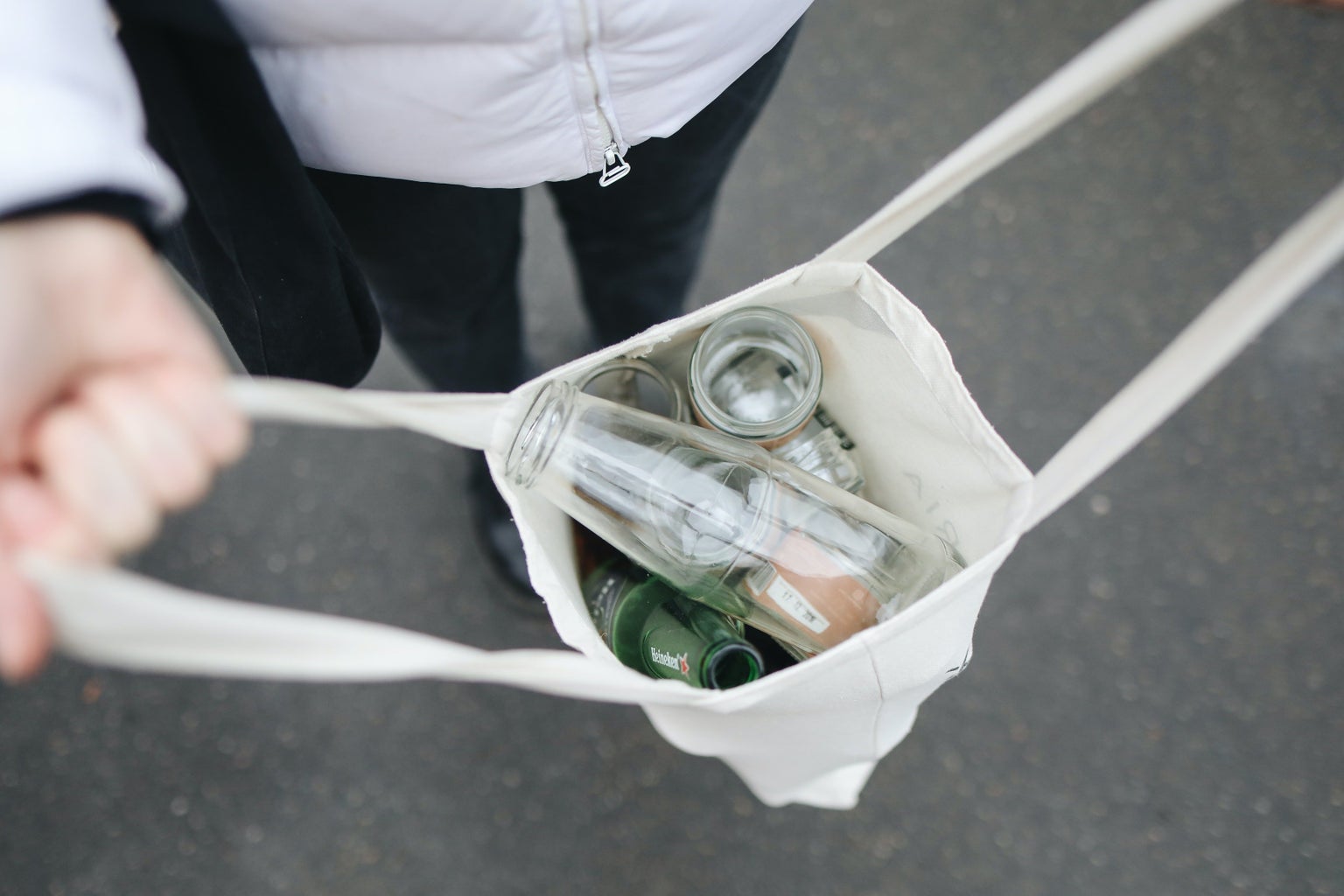There is no denying that we as a species have caused some serious damage to our Earth. While it’s true that the overwhelming majority of destruction is caused by big corporations, the effects still reach everyone. In fact, climate change is one of the leading causes of concern for our age group, and over 45% of those surveyed said their worries affected their daily life.
There are a number of ways to incorporate greener choices into your day-to-day life to better care for both our Earth and ourselves. I’ve gathered up some easy methods you can start implementing today to show some love for the beautiful planet we call home.
- Reduce single-use items
-
As convenient and tempting as they are, single-use paper or plastic items like bottles, paper towels, silverware, straws and grocery bags add up fast. Even when recyclable, these items can take years to decompose or be repurposed. Many sustainability-seeking entrepreneurs have created reusable or easier-to-recycle items that are just as effective — if not more so — that can help to reduce your waste of single-use products. Cloth paper towels and napkins, bamboo cutlery, refillable toiletry products, toothpaste tablets and even washable Q-tips are all on the market and often come with a subscription service to reduce prices and keep you stocked with no effort on your end. Just be sure that you’ll get your use out of them before you hit that “Confirm Purchase” button. For instance, metal straws only start to really save pollution costs around 150 uses. So if you think you might stick it in a drawer and forget about it, try another item you’d use more often.
- make purpose from your produce
-
Almost anyone you ask will tell you that they want to eat healthier. Cooking at home is a big part of this process, but it also has a tendency to leave you frustrated with the greens you just can’t seem to use up or the mushy, moldy fruit that you swore was just fine yesterday. Food waste is an overly abundant issue, and in my opinion, one of the most annoying ways to waste money.
To help with this problem, look to food bloggers or sustainability sources for the best way to store your produce. Many fruits and vegetables can last much longer than they would in the drawer with some simple hacks or can be regrown from your store-bought stubs without requiring a full garden or agricultural knowledge. Sticking celery in a jar of water, for example, will give you another stalk before you know it, and you’ll save some money in the long run. When they do go bad or are used up, be sure to compost if the option is available to you.
Try reducing your meat consumption as well. Whether you embark on a vegetarian lifestyle or just abide for Meatless Monday, you’ll be making a big environmental difference and benefiting yourself in the process.
- reduce fast fashion purchases
-
I’m a big proponent of finding the best deal, and while big warehouse clothing companies like H&M, Shein and Zara are tempting with their low prices and ever-updating styles, they’re usually not worth it. Next time you’re shopping online, try to find some higher quality items that will be more worth the money and not fill you with guilt at the thought of the extreme, inhumane working conditions behind them. Many sustainable clothing shops have a strong social media presence you can browse for inspiration. Or better yet, buy second hand. Even if fast fashion items lasted long enough to donate, most donated clothes end up in the landfill. Try to reduce your hauls, share or swap clothes with friends, and shop more consciously when you need something new.
- DIY
-
If seeing that acronym brought flashbacks of Pinterest boards to your mind, you’re not alone. While it sounds silly and obvious, relying on what you can do rather than high-energy machines saves power and money. If the temperature is off, throw on a sweatshirt or open a window. Go for a run or follow a class one day instead of relying on gym machines. Hang your clothes to dry. Open the curtains and let the sunlight in when the room feels dim. Opt to carpool or use public transportation. Although some of these suggestions are inconvenient, after a while, they can become habits that you don’t even notice. The only asterisk I assign is in doing the dishes. A dishwasher actually uses less water than manual dish washing, so if you have one, put it to use.
- reduce, reuse, recycle
-
The oldest suggestion in the green book is those three green arrows. Although it seems obvious, the vast majority of recyclables don’t actually get recycled. Take a second to consider what’s in your hand whenever you’re headed to a trash can; I’m sure there are some items you’ve never thought twice about that can actually be recycled instead. For instance, toilet paper rolls. The average person goes through 90 toilet paper rolls a year and rarely ever recycles one, even though they’re just cardboard. Try adding a recycling bag or bin in your bedroom and or bathroom to remind yourself of the option when you’re about to throw something away.
There are many other items you throw away or even recycle that you may gain a use for if you save. Glass containers for example, can be used in hundreds of ways and you buy them constantly just in getting groceries. Water is another example. After rinsing off some food or making pasta, you’re often left with a bowl of water that you dump down the drain. Instead, use it to cook, water your plants or even for a self-care treatment.

There are dozens of decisions you make every day that can be replaced with a more sustainable choice, from reaching for a paper towel to tossing old vegetables. Social media is a great resource for sustainable tips and suggestions. Just keep in mind that making sustainable choices does not require you to break out your wallet. Many sustainable ways of living such as installing solar panels or going zero-waste come with a fair amount of privilege. But helping the planet isn’t all or nothing. If you do what you can in your way of life, it’ll make an impact on both you and the Earth.



